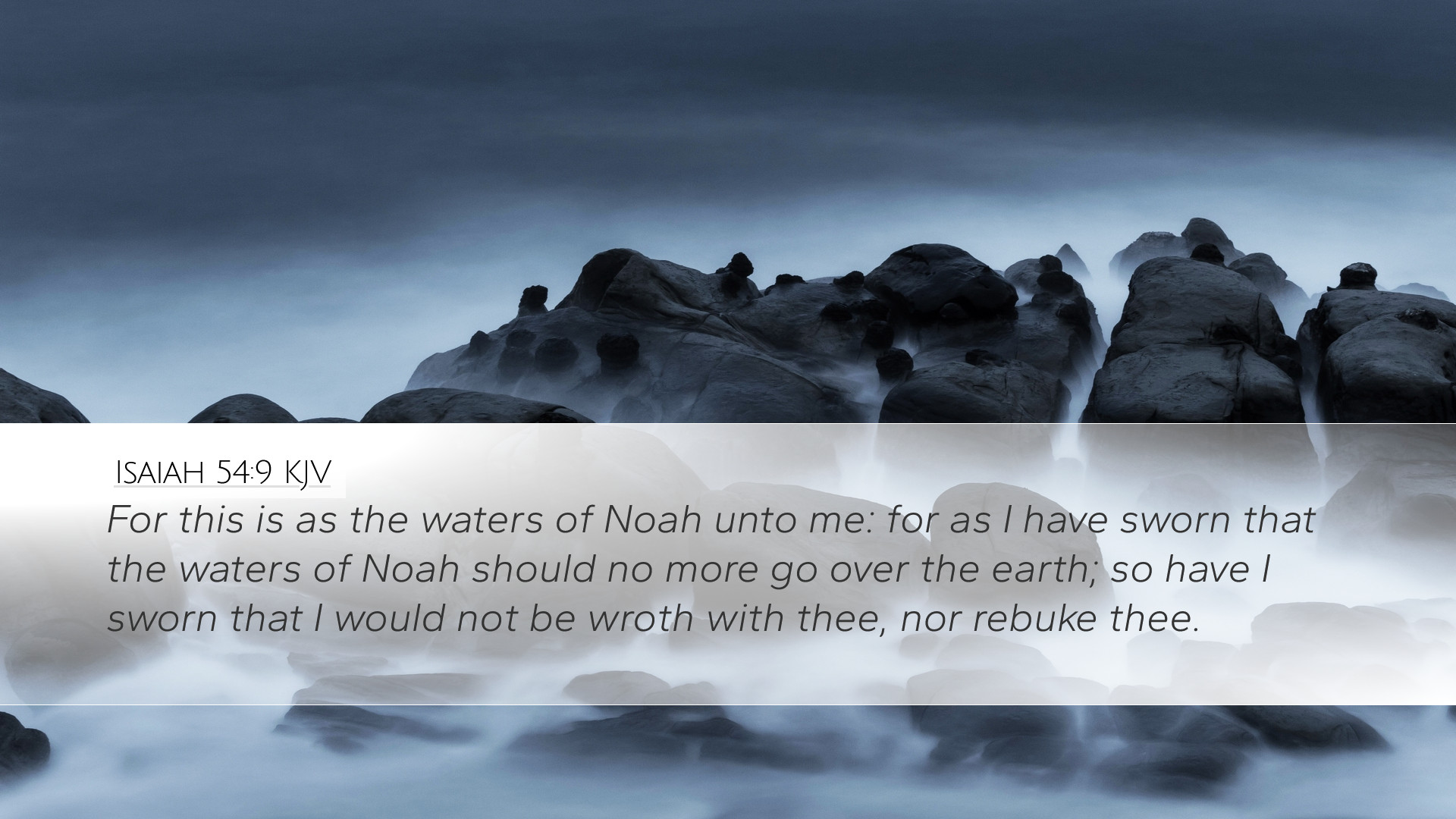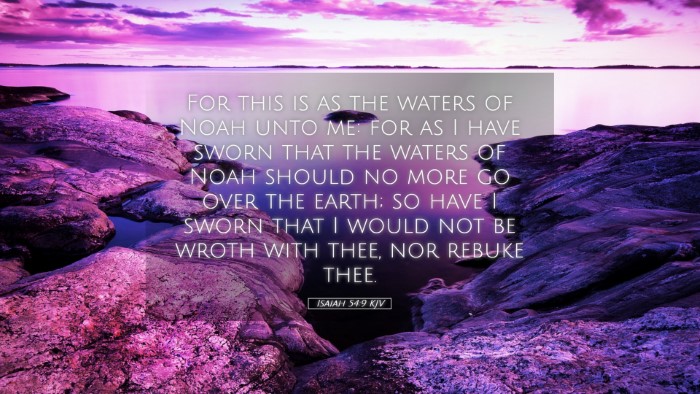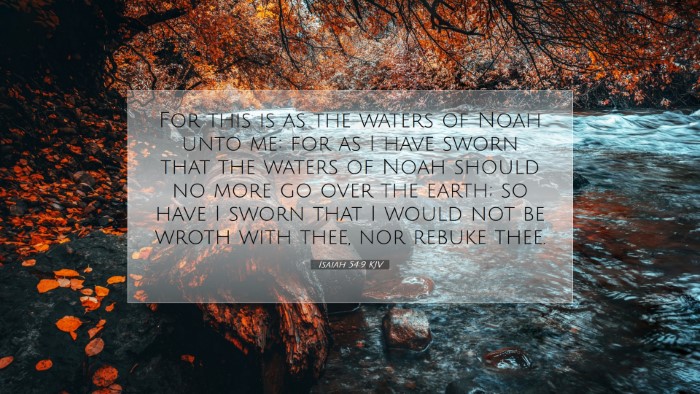Commentary on Isaiah 54:9
Verse: "For this is as the waters of Noah unto me: for as I have sworn that the waters of Noah should no more go over the earth; so have I sworn that I would not be wroth with thee, nor rebuke thee."
Introduction
This verse forms part of a larger discourse in the book of Isaiah, which significantly addresses themes of hope, restoration, and divine promise. The prophet Isaiah, through this verse, draws upon the vivid memory of the flood to remind Israel of God’s enduring commitment to His people, assuring them of His mercy and steadfast love.
Contextual Background
The context of Isaiah 54 is set against the backdrop of Israel's impending restoration after a period of great suffering and exile. Chapter 54 comes after God’s declaration of Israel’s redemption and calls upon the people to enlarge their hearts and territories in anticipation of the blessings to come. This chapter emphasizes God’s covenant faithfulness amid their historical trials.
The Connection to the Flood
The reference to the waters of Noah serves as a powerful metaphor. In the flood narrative (Genesis 6-9), God utilized an overwhelming deluge to judge the earth due to humanity’s wickedness. Yet, God also made a promise through His covenant never to destroy the earth by flood again. Here, the similitude serves to assure the people that just as God’s promise during Noah’s time was founded on His mercy and justice, so too is His commitment to Israel after their chastisement.
Insights from Commentaries
-
Matthew Henry:
Henry emphasizes the unwavering nature of God's promises. He points out that the assurance in Isaiah 54:9 reflects God’s mercy and kindness. Just as God relented from the flood judgment, He assures His people of His restrained wrath and sustaining covenant. Henry also notes how this verse signifies a dramatic shift in the tone of God’s relationship with Israel, focusing on compassion rather than condemnation.
-
Albert Barnes:
Barnes elucidates that the reference to Noah represents a profound sense of security for Israel. The flood was a decisive event throughout Scripture, but God's promise thereafter demonstrates his commitment to prevent total destruction. His remarks on the original Hebrew suggest that the language conveys God's emotional stance towards His people, highlighting a deep relational aspect rather than mere legalistic guarantees.
-
Adam Clarke:
Clarke elaborates on the covenantal assurances presented in this verse, asserting that the parallel between the flood and God's assurance to Israel underlines the essence of divine promises. He asserts God's promise in Isaiah 54:9 is a heartfelt commitment reflecting mercy, highlighting the emotional gravity that should cultivate a response of faith and trust among the Israelites. Clarke also warns against viewing God's promises lightly, urging believers to embrace His assurances deeply.
Theological Implications
This verse encapsulates profound theological themes that are pertinent for contemporary readers. The imagery employed speaks volumes about God’s nature—He is compassionate, patient, and faithful. For theologians and scholars, Isaiah 54:9 serves as an invitation to explore the dynamics of God’s covenant with humanity, particularly the contrast between judgment and grace.
Applications for Today's Believers
Isaiah 54:9 offers vital lessons relevant for modern Christian life:
- Assurance: Just as Israel was reminded of God's commitment following judgment, believers today can take solace in the assurance that God's love is unwavering.
- Hope in Restoration: The promise of restoration, displayed in God’s dealings, instills hope that no matter the circumstances, there is a divine plan for healing and redemption.
- Encouragement in Faith: This verse calls believers to trust God's promises amidst adversity, echoing the theme of faith-filled expectation for what God is yet to do.
- Call to Repentance: Acknowledging God’s merciful stance serves as a reminder to return to Him sincerely, fostering repentance and spiritual awakening.
Conclusion
Isaiah 54:9 is more than a historical remark; it is a foundational affirmation of divine love and stability amid change and challenge. By invoking the memory of the waters of Noah, God instills a timeless message of hope and assurance, resounding through the ages to all who experience His grace. As such, this verse offers rich theological and practical insights for pastors, students, theologians, and scholars, grounding their understanding of God's steadfast nature in the tapestry of biblical revelation.


